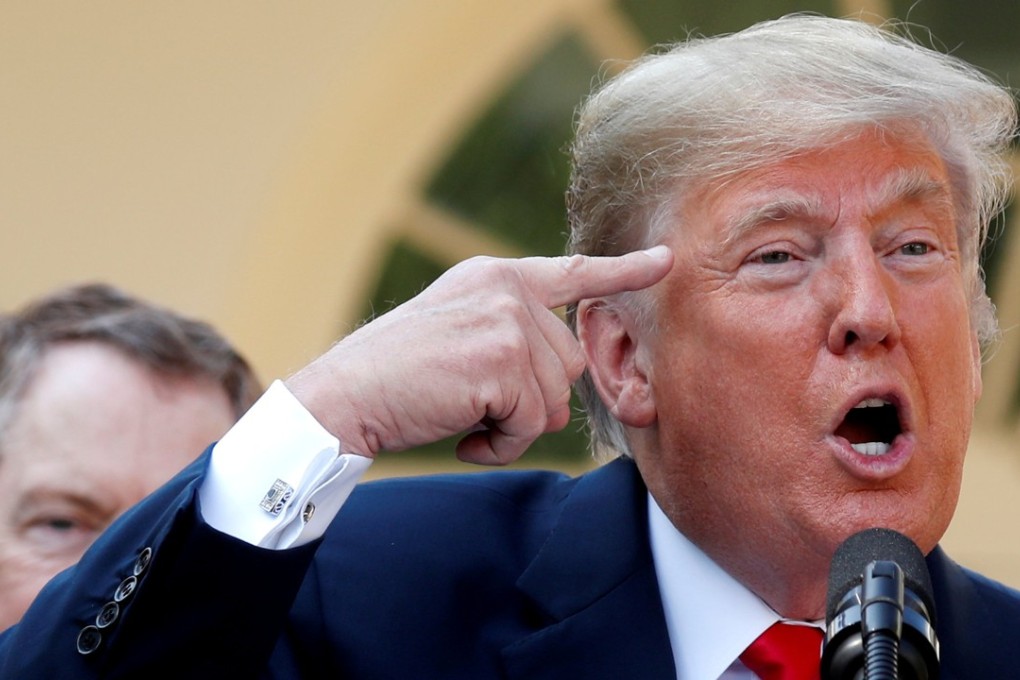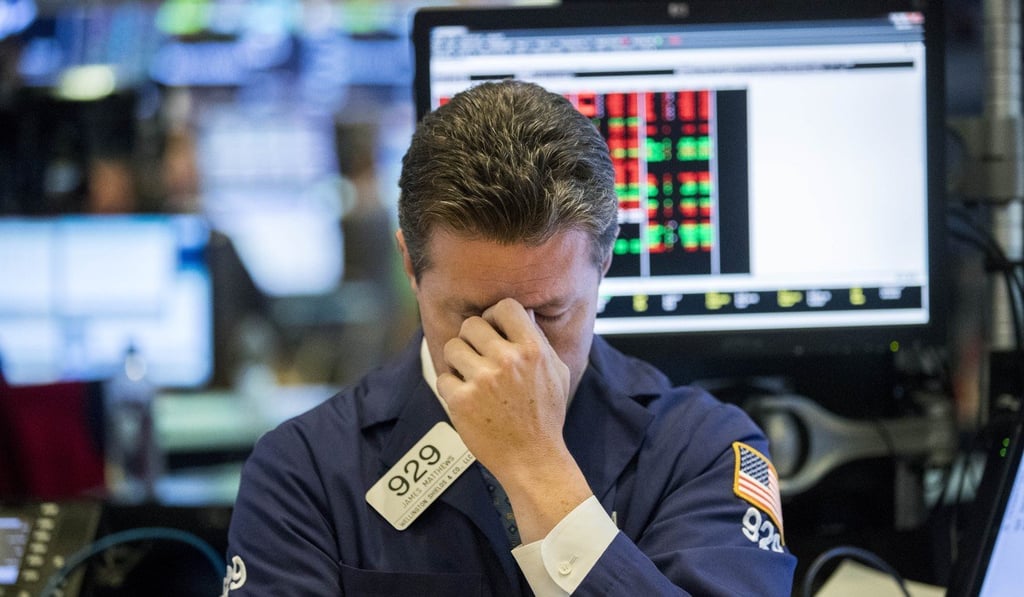The View | How falling US stock markets can give China more leverage against Trump in the trade war
Nicholas Spiro says the US president has used the leading S&P 500 index as a yardstick of his success since taking office. Beijing could let the yuan slide further to drag the index down and discourage Washington from imposing steeper trade tariffs

Yet China’s battered stock market has only been a sideshow for international investors in the past week. Instead, all eyes have been on the dramatic sell-off in US equities, this year’s most popular and resilient asset class.
The S&P 500 plunged nearly 7 per cent over a six-day losing streak. This wiped US$1.7 trillion off the value of the world’s leading share index, equivalent to 70 per cent of the value Chinese equities have lost since late January, according to Bloomberg.
The decline in US shares was so ferocious – the tech-heavy Nasdaq composite index suffered its worst rout since 2011 – that a gauge of global equities outside the US fell to its lowest level since April 2017.

The S&P 500’s losing streak is the longest since Donald Trump won the United States presidential election in November 2016. It is doubly significant because of the importance Trump has attached to the performance of the index since he took office.
